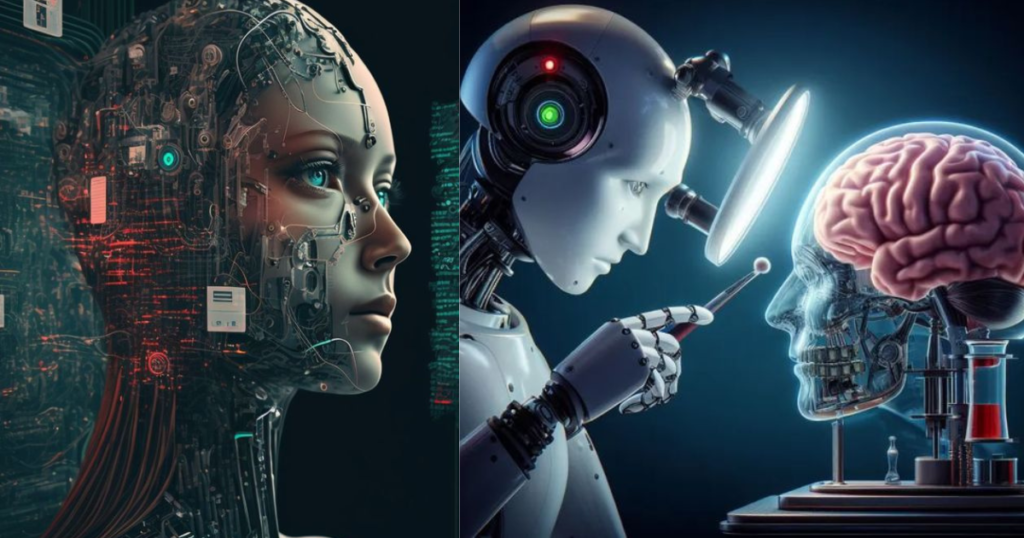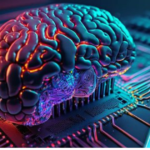Artificial Intelligence (AI) is no longer a futuristic concept, but a reality that’s transforming the way we live, work, and interact with each other. From virtual assistants like Siri and Alexa to self-driving cars and personalized product recommendations, AI is everywhere. But what exactly is AI, and how did it become such a big deal? Let’s dive in!
Artificial Intelligence refers to the development of computer systems that can perform tasks that typically require human intelligence, such as learning, problem-solving, decision-making, and perception. AI systems use algorithms and data to make predictions, classify objects, and generate insights, often with greater speed and accuracy than humans.
Importance of Understanding AI in Today’s World
AI is no longer a niche technology; it’s a fundamental aspect of modern life. Understanding AI is crucial for several reasons:
- Job market: AI is transforming the job market, creating new opportunities and challenges. To stay relevant, professionals need to develop AI-related skills.
- Business: AI is a key driver of innovation and competitiveness. Companies that adopt AI early will have a significant advantage over their competitors.
- Society: AI raises important ethical and societal questions, such as bias, privacy, and accountability. We need to have informed discussions about the impact of AI on our society.
Benefits of Artificial Intelligence
AI offers numerous benefits across various industries and aspects of our lives. Let’s explore some of the most significant advantages:
Automation and Efficiency
AI can automate repetitive, mundane tasks, freeing up time for more strategic and creative work. By optimizing business processes, AI can lead to significant productivity gains and cost savings.
Enhanced Decision-Making Capabilities
AI systems can analyze vast amounts of data, identify patterns, and make predictions, enabling humans to make better decisions. AI-powered decision-making is particularly useful in fields like healthcare, finance, and logistics.
Improved Customer Experiences
AI-powered chatbots and virtual assistants can provide personalized customer support, helping businesses improve customer satisfaction and loyalty.
Innovation and Competitiveness
AI enables businesses to innovate and differentiate themselves from competitors. By adopting AI early, companies can create new products, services, and business models that disrupt entire industries.
Challenges of Artificial Intelligence
While AI offers numerous benefits, it also raises significant concerns. Let’s explore the challenges associated with AI:
Job Displacement and Economic Impact
AI has the potential to automate jobs, which could lead to significant job displacement. According to a report by the McKinsey Global Institute, up to 800 million jobs could be lost worldwide due to automation by 2030.
Bias and Discrimination
AI systems can perpetuate bias and discrimination if they’re trained on biased data or designed with a particular worldview. This can lead to unfair outcomes, exacerbate existing social issues, and perpetuate discrimination.
Ethical Concerns and Accountability
AI raises ethical concerns, such as the use of AI in autonomous weapons, surveillance, and censorship. There’s a need for accountability and transparency in AI decision-making processes.
Applications of Artificial Intelligence
AI has numerous applications across various industries, including:
Natural Language Processing (NLP)
NLP enables computers to understand, interpret, and generate human language. Applications include chatbots, virtual assistants, and language translation software.
Computer Vision and Image Recognition
Computer vision enables computers to interpret and understand visual data from images and videos. Applications include facial recognition, object detection, and image classification.
Robotics and Autonomous Systems
Robotics and autonomous systems use AI to perform tasks that typically require human intelligence. Applications include self-driving cars, drones, and robotic process automation.
Predictive Analytics and Machine Learning
Predictive analytics and machine learning enable computers to make predictions and learn from data. Applications include fraud detection, recommendation systems, and predictive maintenance.
Future Prospects of Artificial Intelligence
As AI continues to evolve, we can expect:
Emerging Trends and Advancements
Advancements in areas like Explainable AI, Transfer Learning, and Edge AI will shape the future of AI.
Potential Impact on Various Industries
AI will transform industries like education, energy, and transportation, leading to increased efficiency and innovation.
Job Market and Career Opportunities
While AI may displace some jobs, it will also create new career opportunities in areas like AI development, deployment, and ethics.
Conclusion:
In this blog post, we embarked on a journey to explore the vast and fascinating realm of Artificial Intelligence. We delved into the benefits of AI, including automation, enhanced decision-making, and improved customer experiences. We also tackled the challenges of AI, such as job displacement, bias, and ethical concerns. Additionally, we examined the various applications of AI across industries and discussed the future prospects of this technology. Through this journey, we have gained a deeper understanding of the transformative power of AI and its potential to revolutionize the way we live and work.
As we conclude this odyssey, we are reminded that AI is a double-edged sword – it can bring immense benefits, but also poses significant risks. The future of AI is uncertain, but one thing is clear: it is up to us to shape its trajectory. Let us harness the power of AI to create a world that is more efficient, more compassionate, and more just. Let us embrace the possibilities of AI, while mitigating its risks. And let us never forget that the true potential of AI lies not in its technology, but in its ability to augment and amplify the best of humanity. As we step into the AI-driven future, let us do so with hope, with caution, and with the wisdom to create a world that is truly intelligent – in every sense of the word. The future is here, and it is intelligent.



